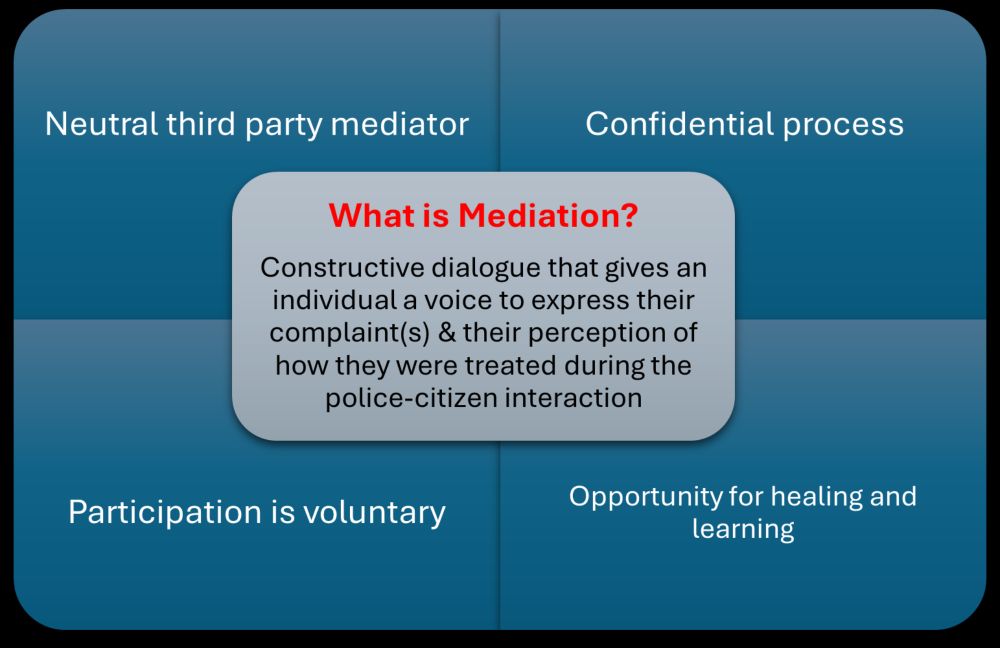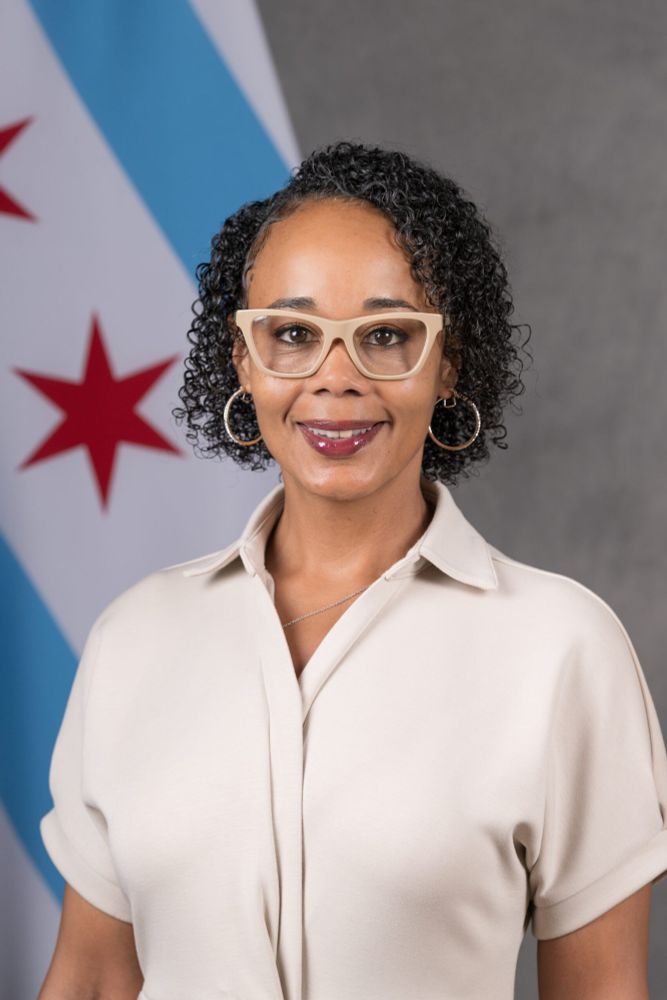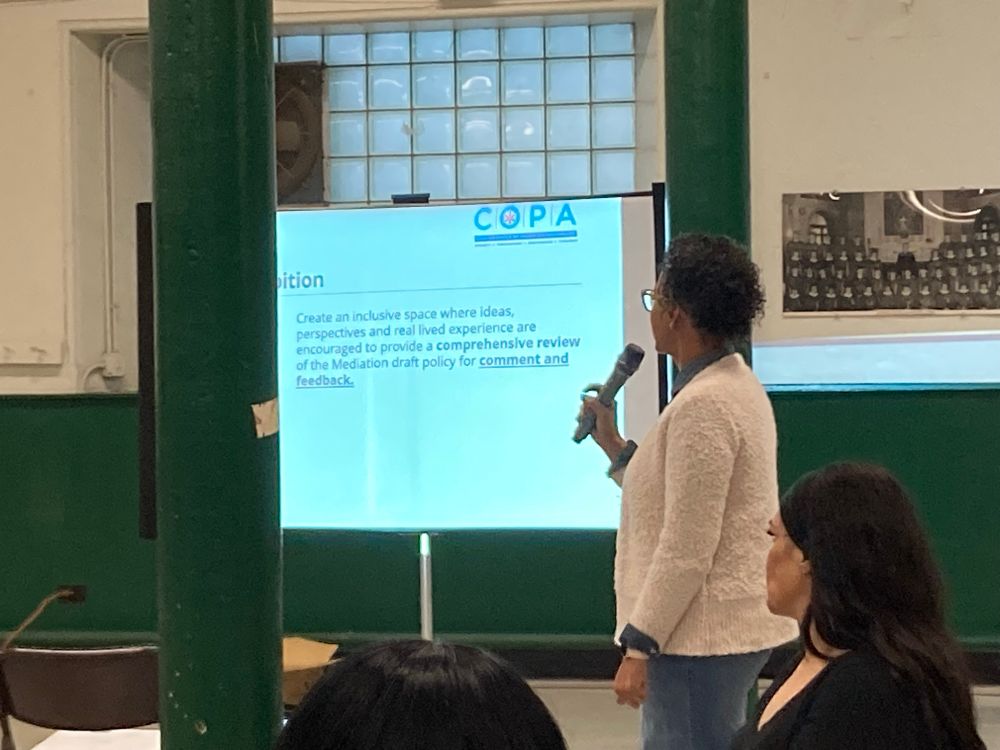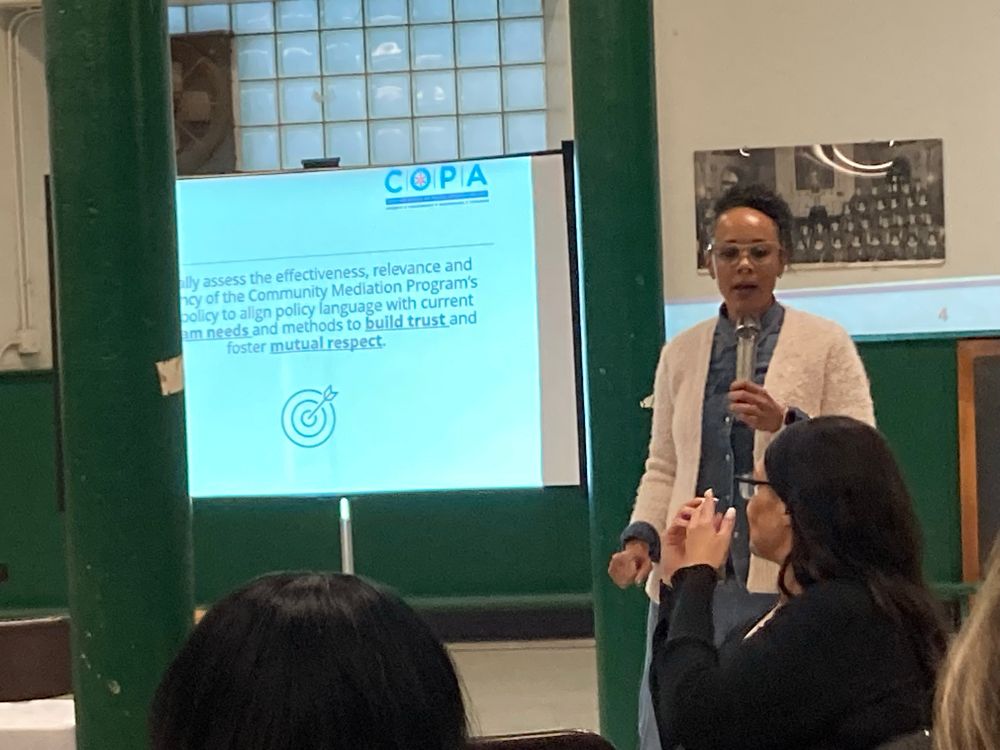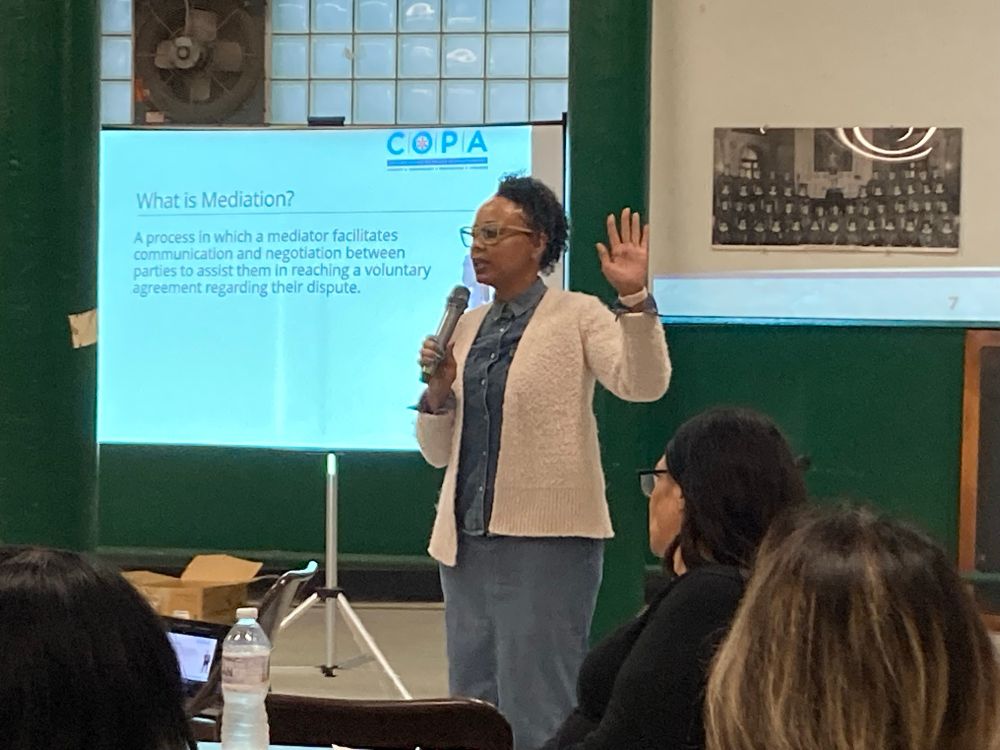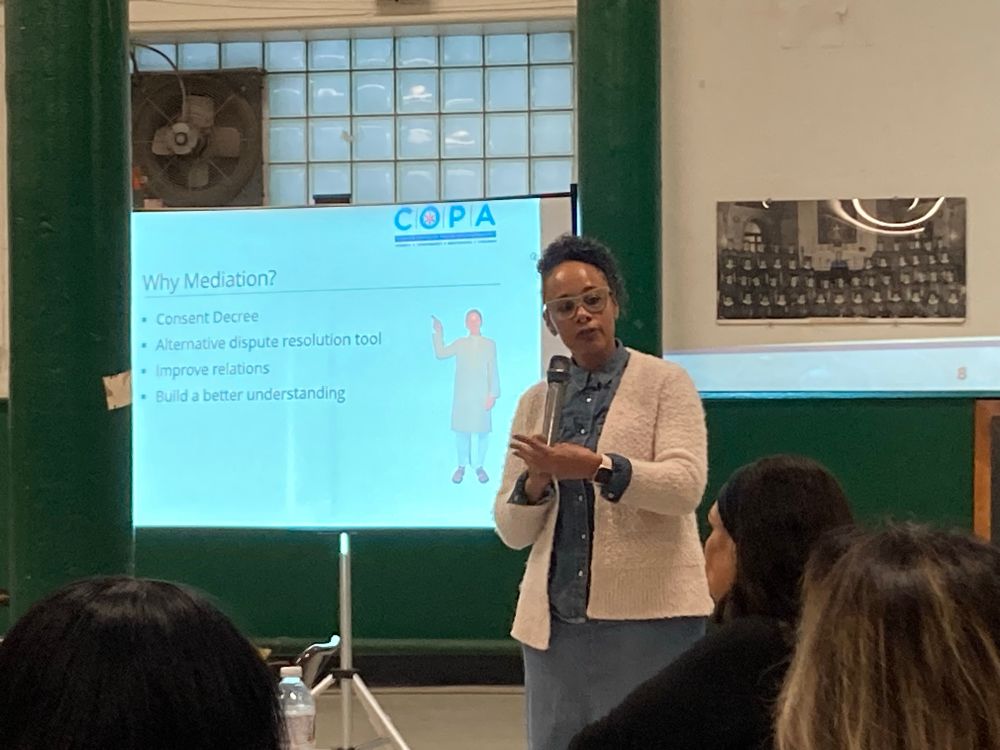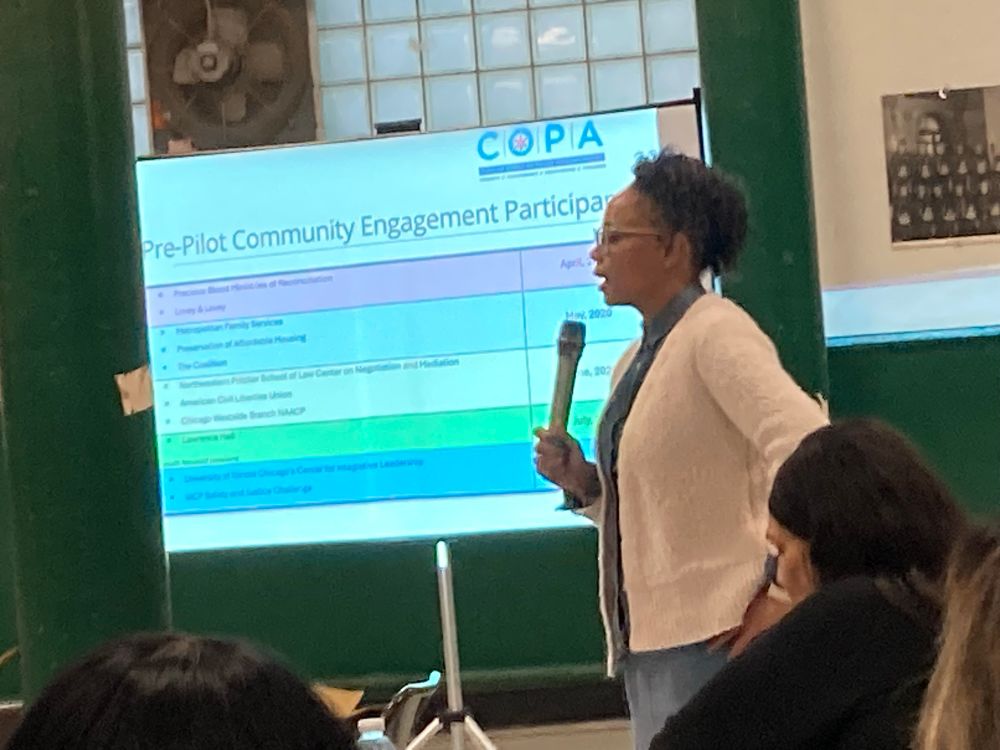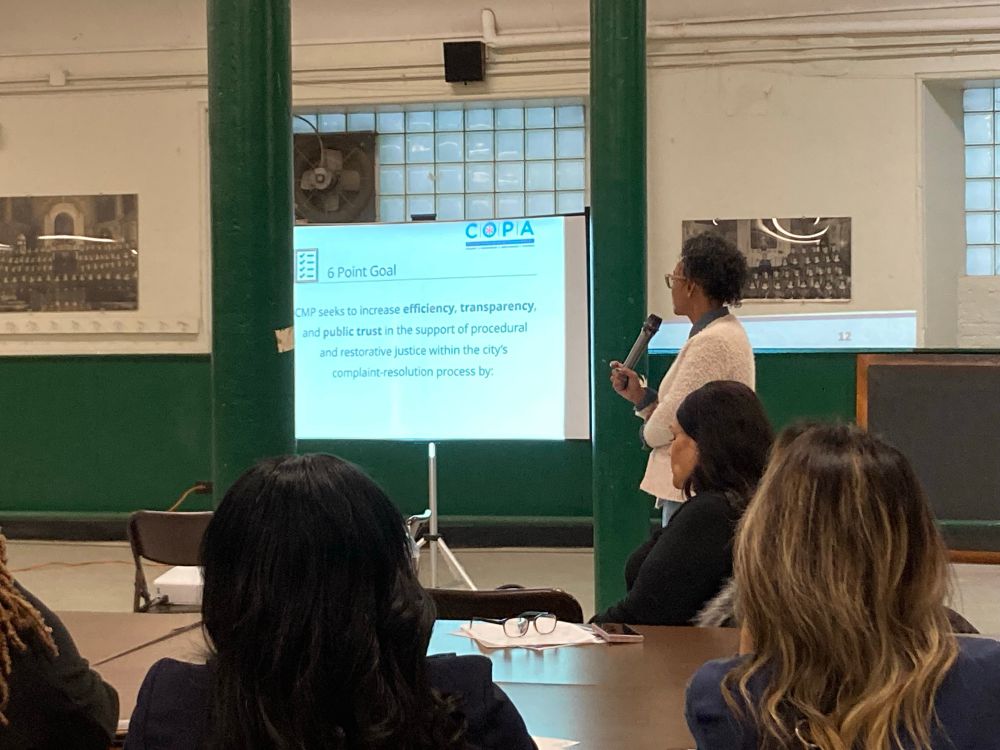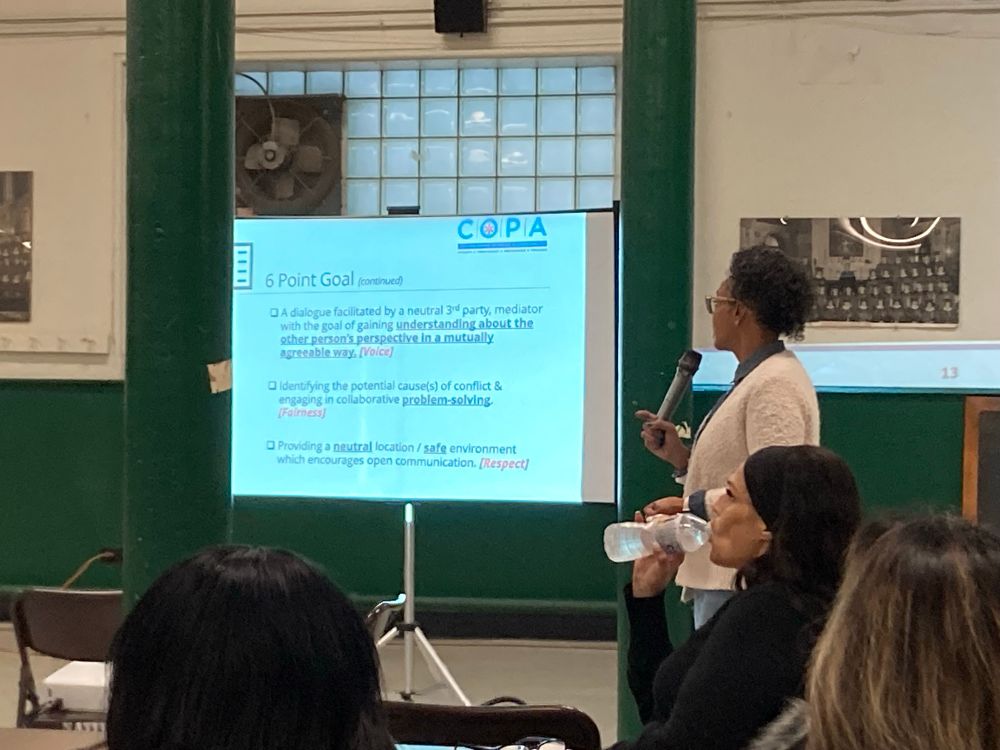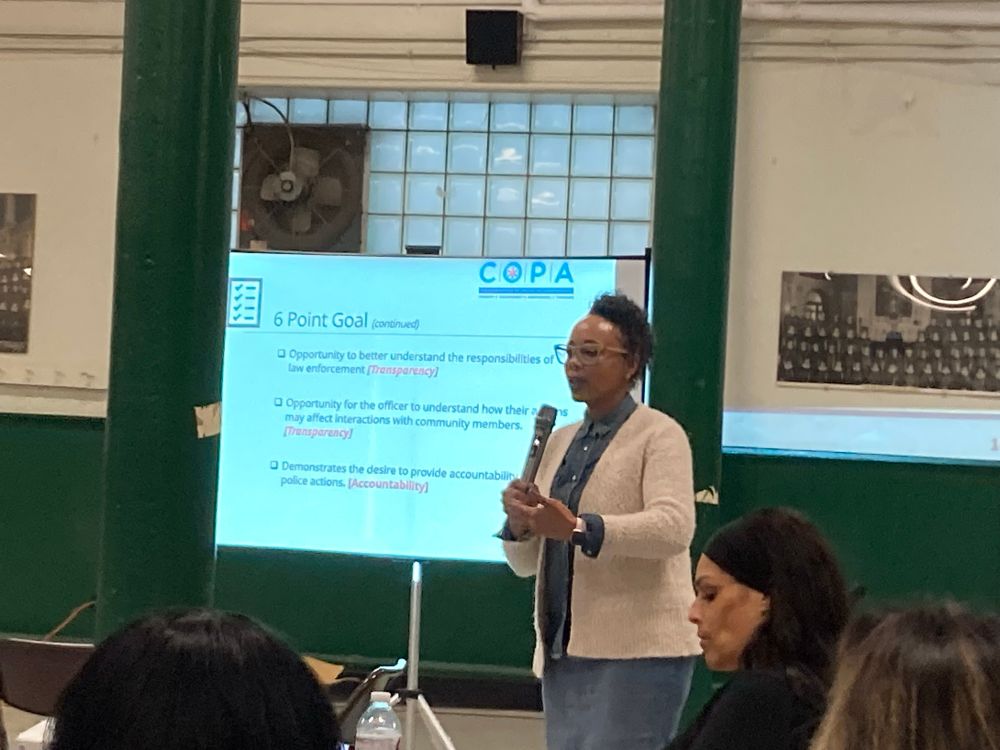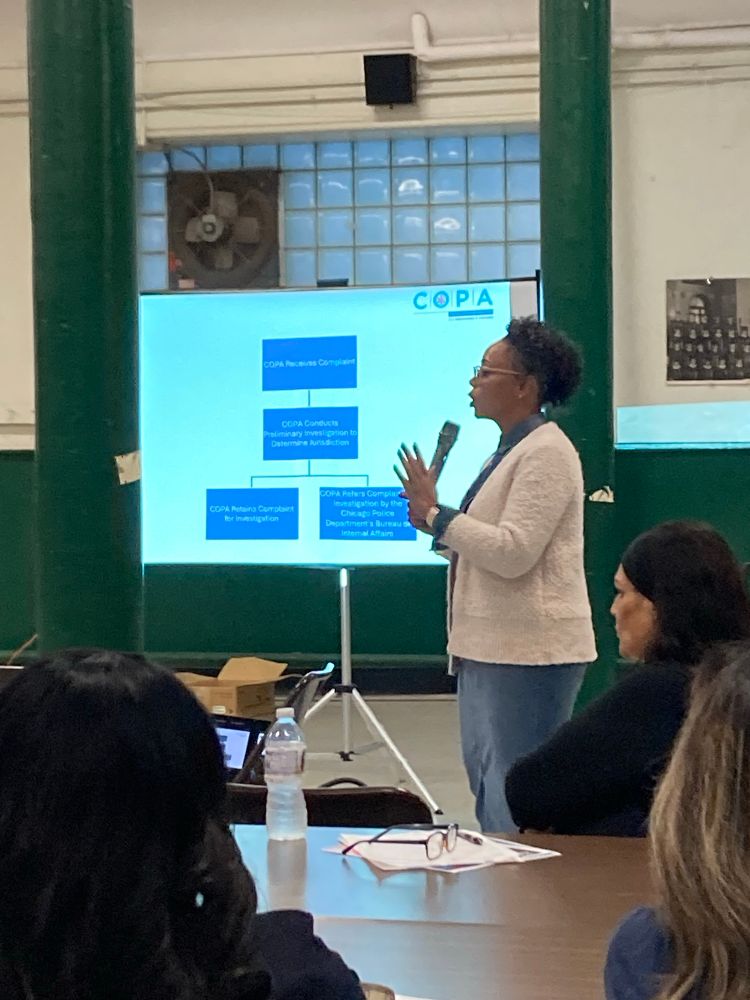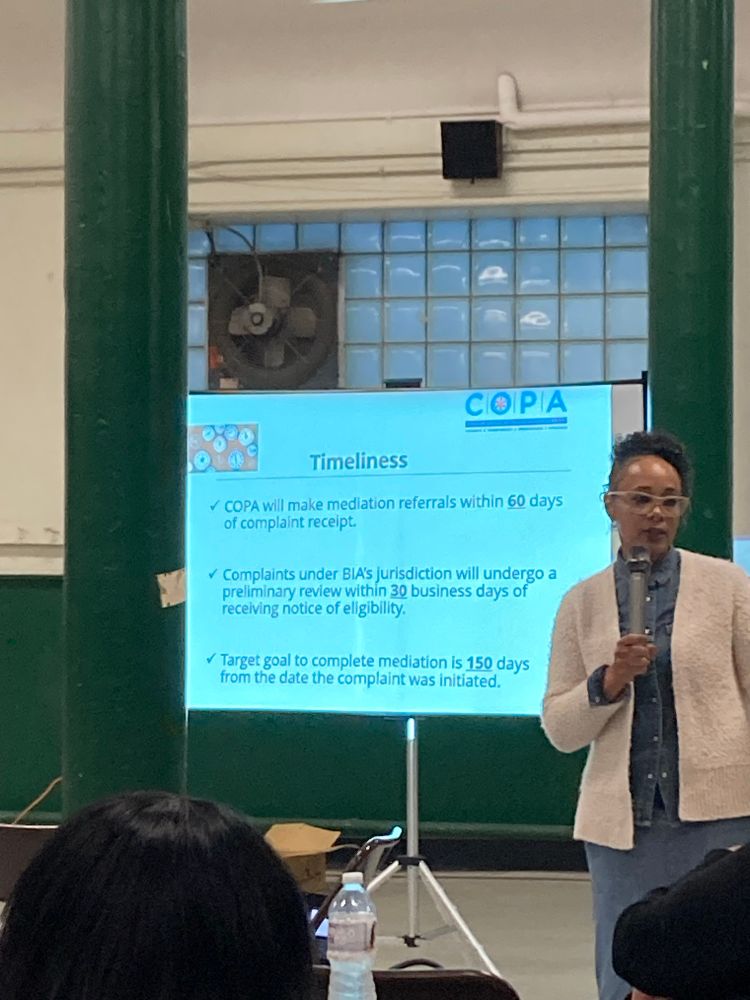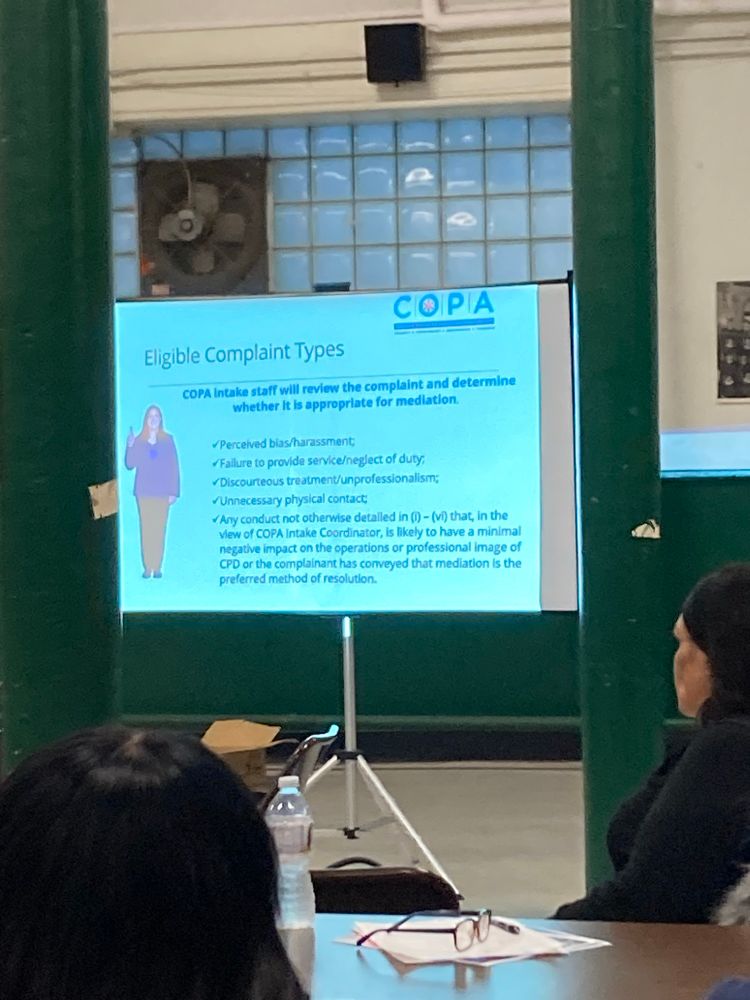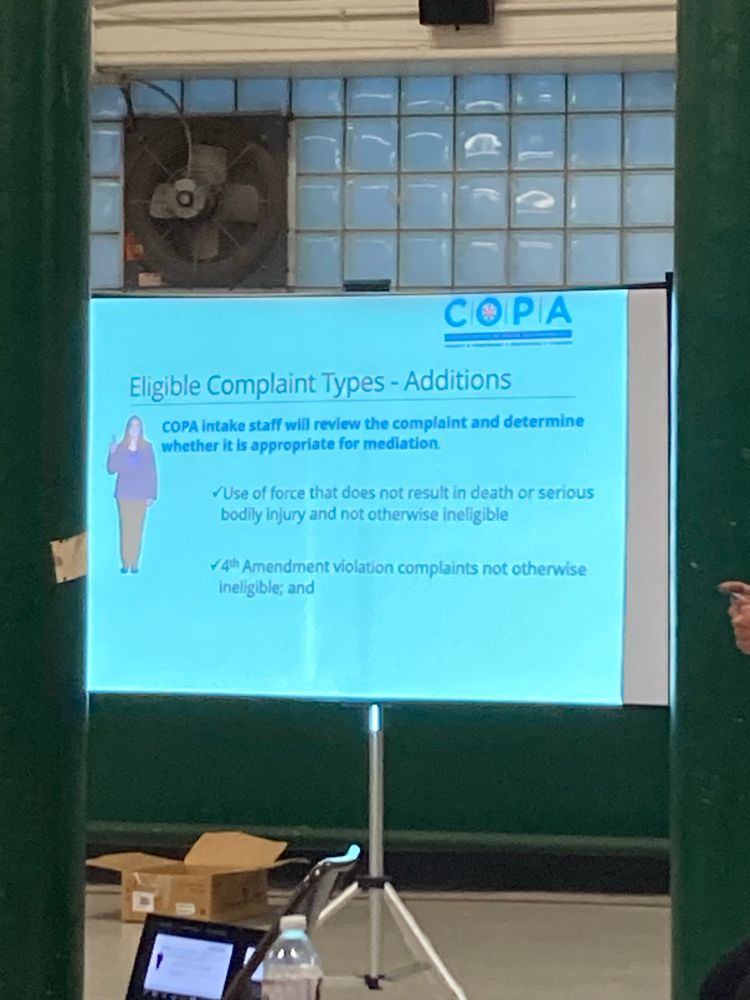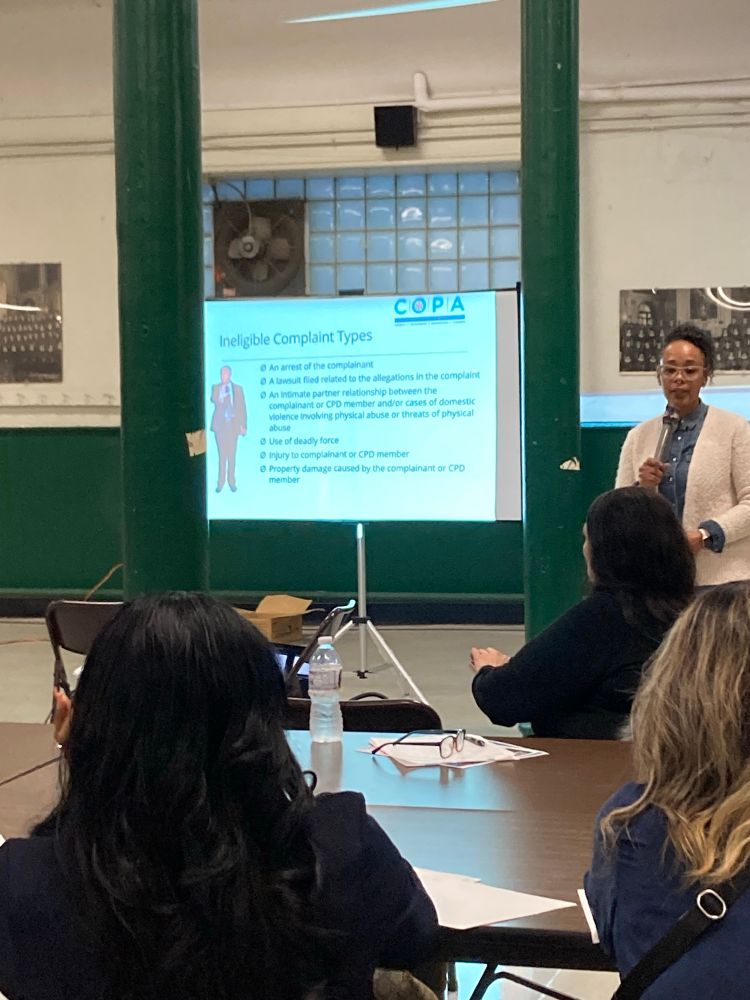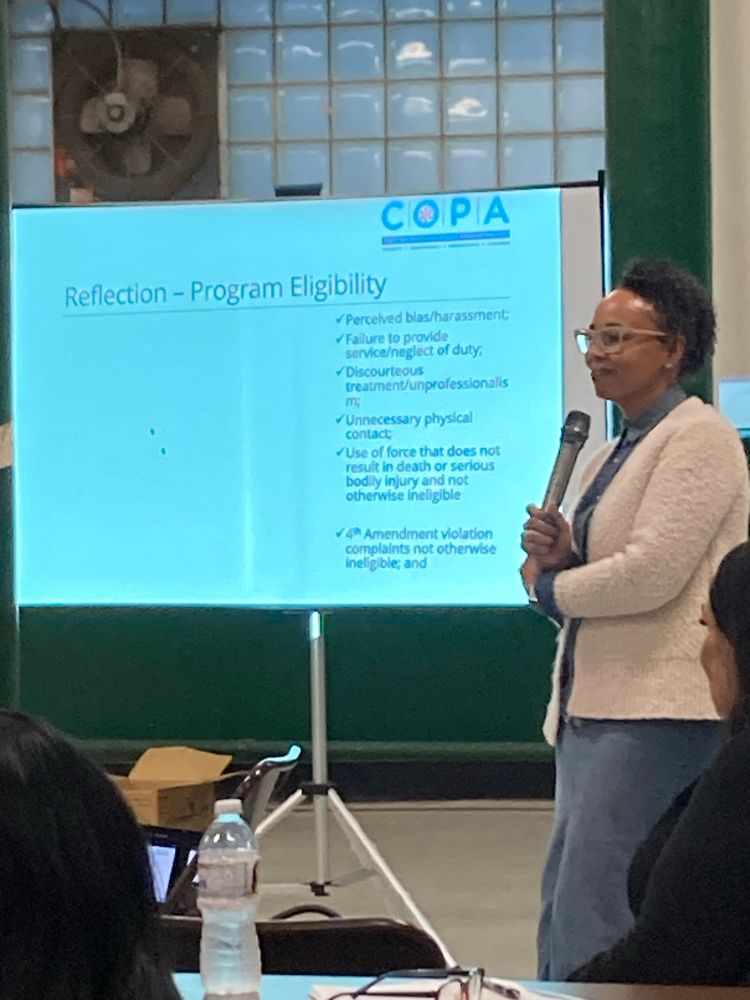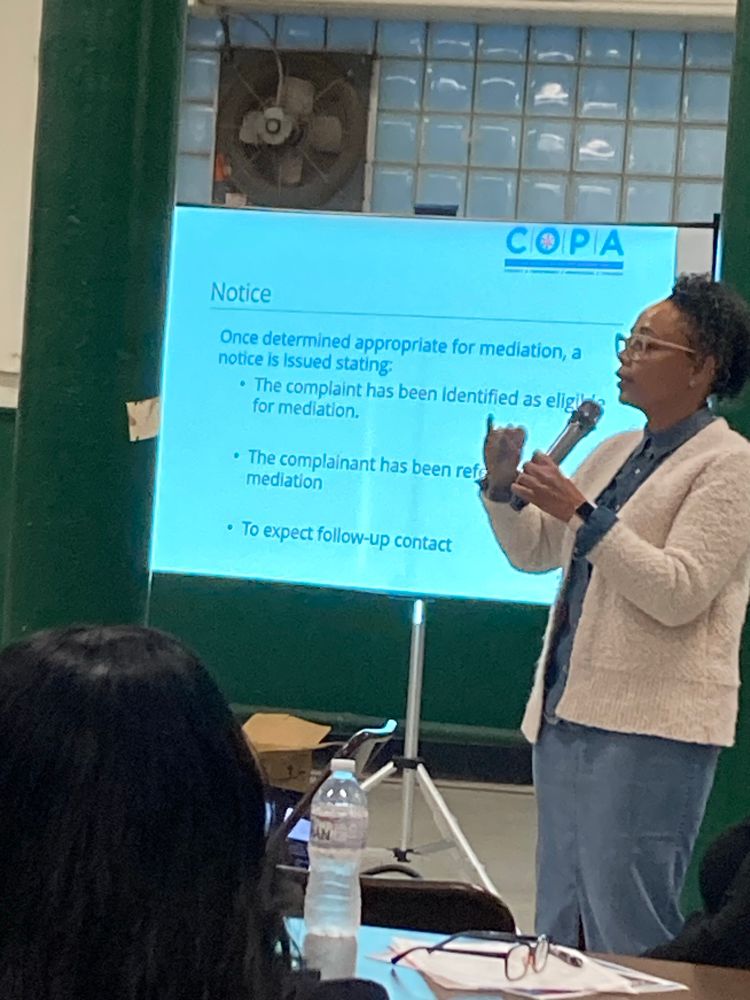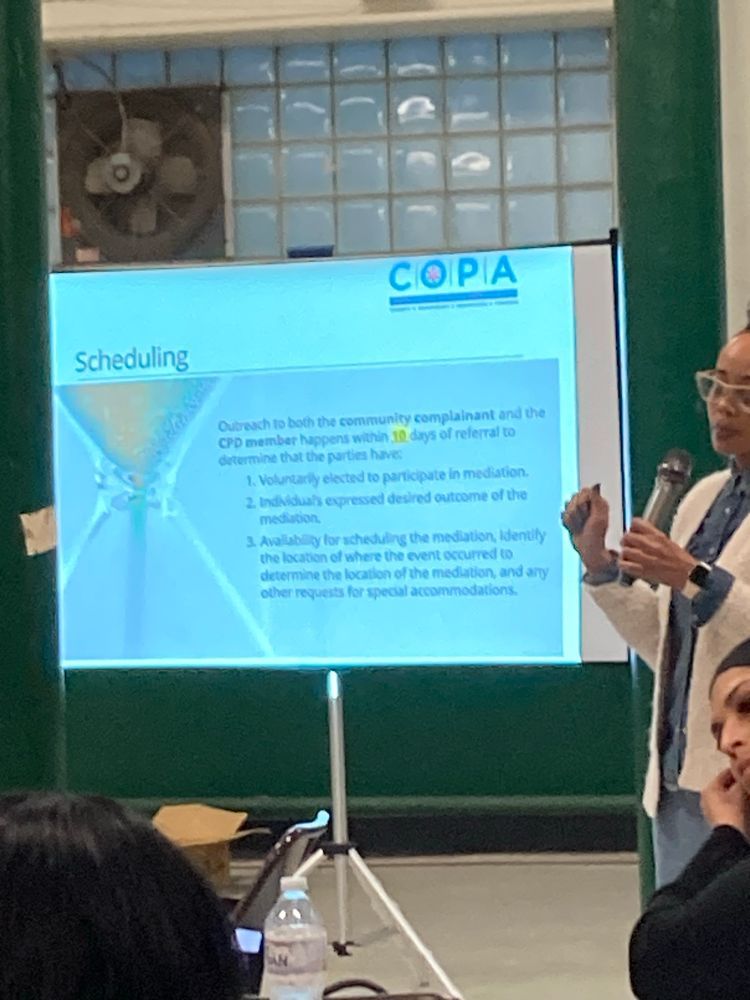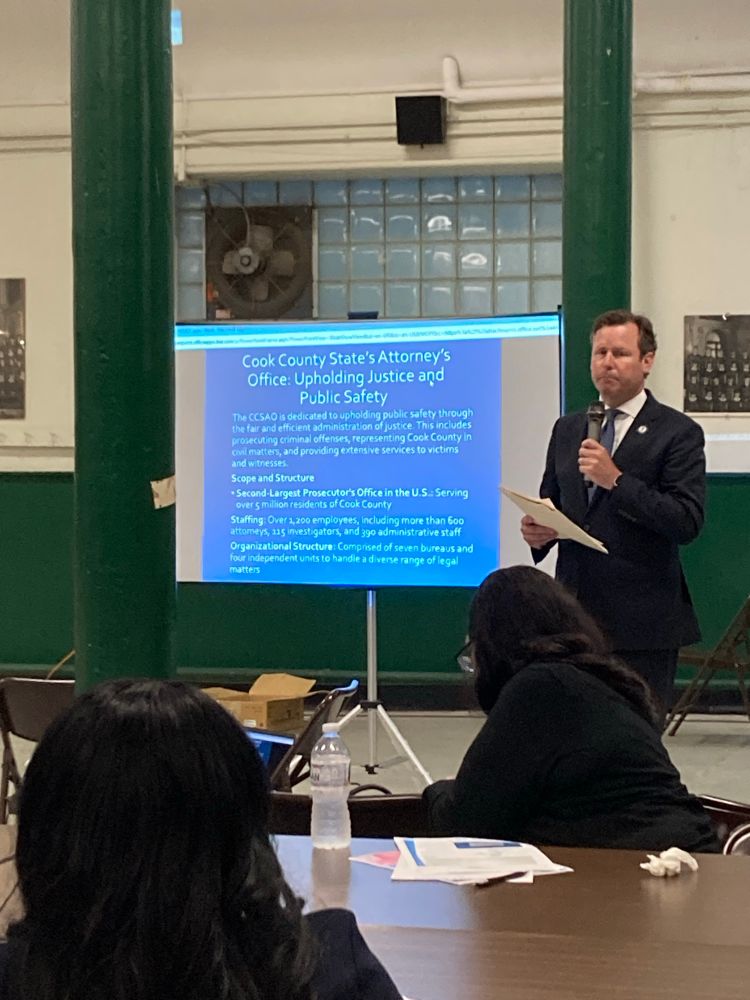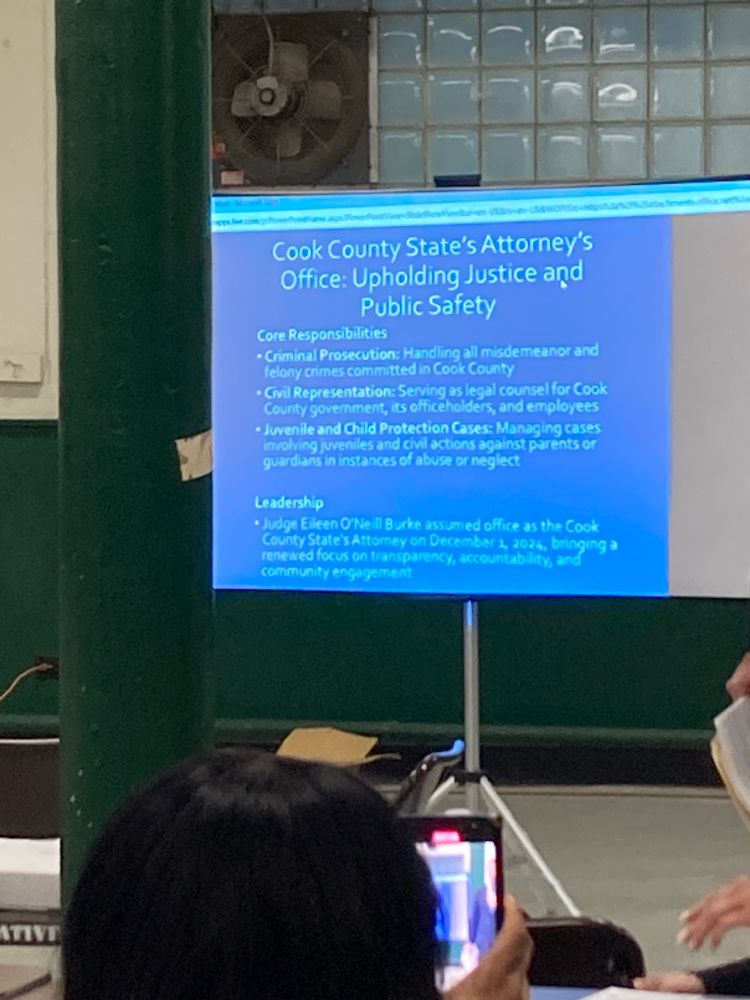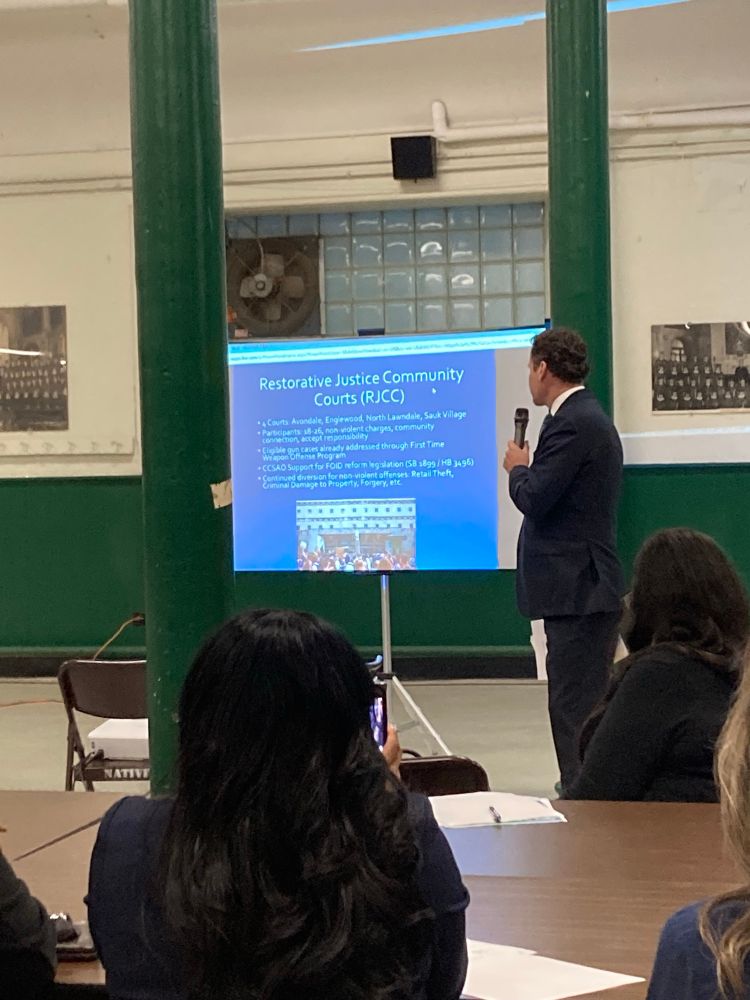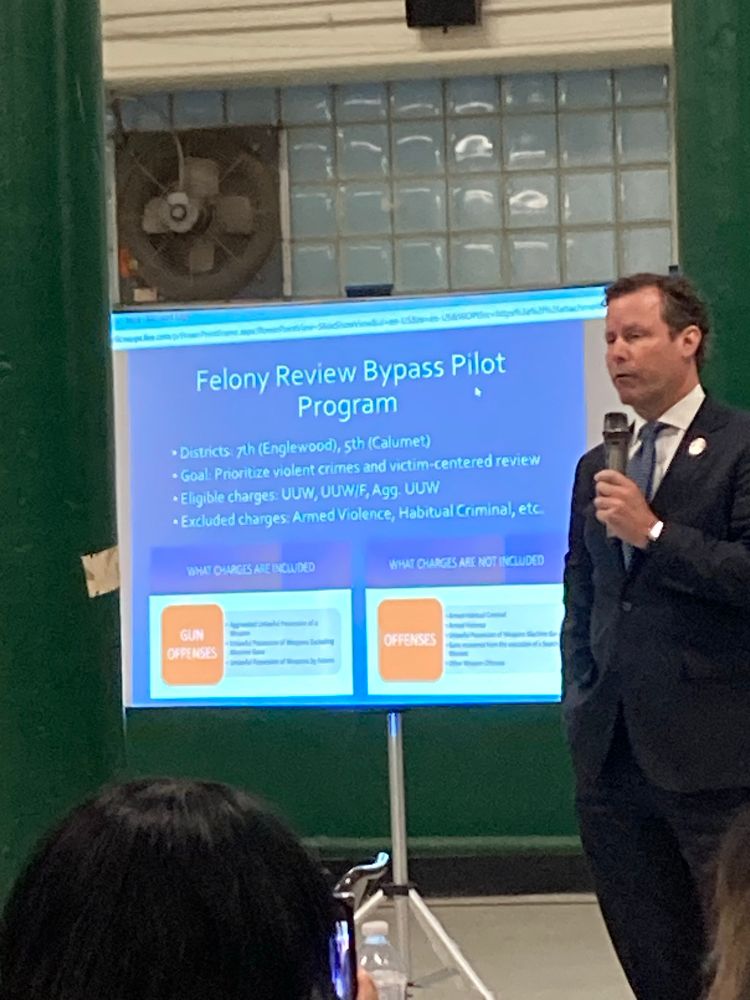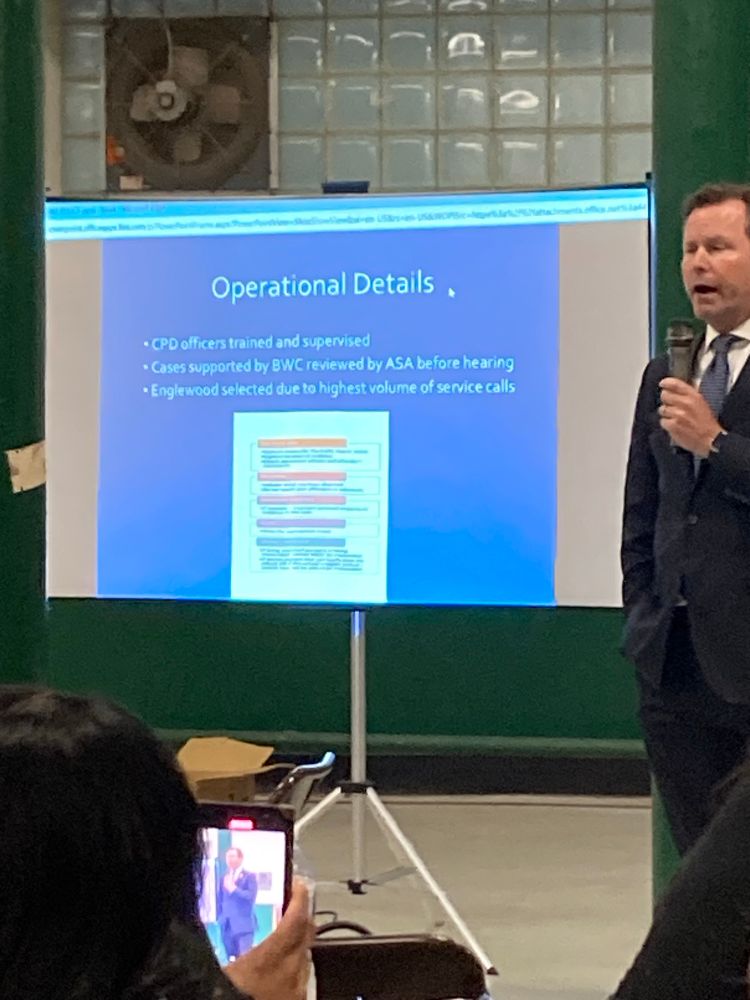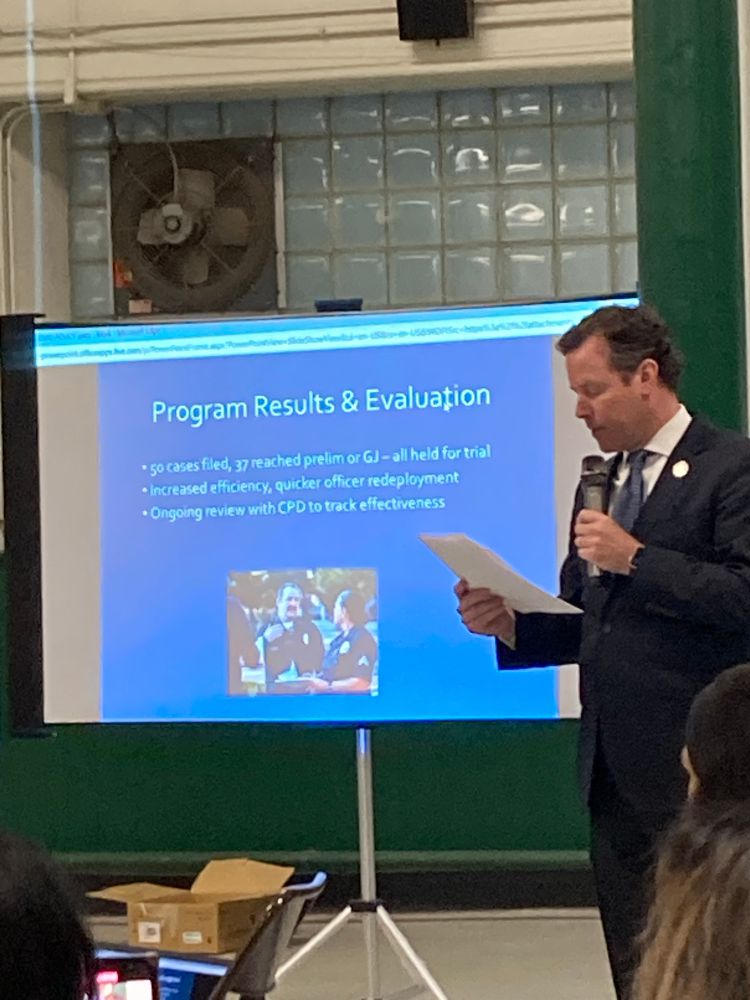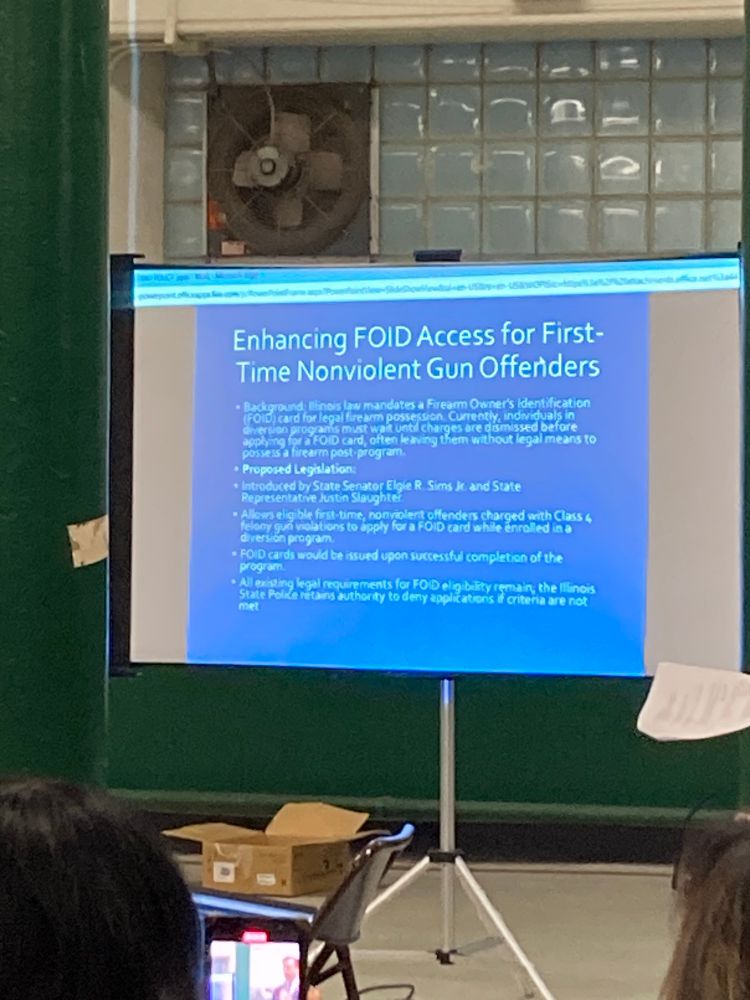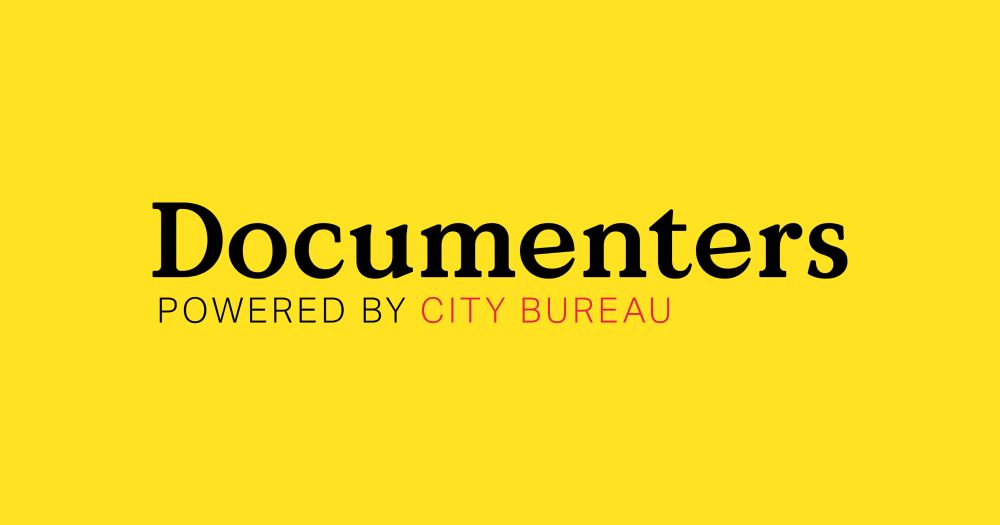The recent 9th District Council meeting touched on: the Workforce Allocation Study, the relaunch of COPA's Community Mediation Pilot Program, the bypass program and current legislation regarding FOID access.
Good evening Chicago! Tonight I’ll be documenting tonight’s Police District 009’s monthly meeting for @chidocumenters.bsky.social #CHIdocumenters
06:00 PM Apr 30, 2025 CDT
The 9th district is made up of New City, Gage Park, Near South Side, South Lawndale, Bridgeport, Mckinley Park, Fuller Park, West Englewood, Englewood, Brighton Park, Douglas, Armour Square, and Lower West Side. It includes Guaranteed Rate Field (Sox Park).
For contact info for the 9th district, including an email address and phone numbers, see here: https://www.chicagopolice.org/9th-district-deering/
Tonight’s 6:30PM meeting is being held at Nativity Church (basement) at 653 W 37th St. The meeting notice (including agenda) can be found here: https://www.chicago.gov/content/dam/city/depts/ccpsa/district-council-agendas/dc-009/notices-and-agendas/2025/Regular-Meeting-Notice-and-Agenda-009-2025-04-30.pdf
The 9th Police District Council is composed of Chair Carlos Sanchez, Denise E. McBroom (Nominating Committee), and Erin Vogel (Community Engagement). Their individual email addresses can be found on this page: https://www.chicago.gov/city/en/depts/ccpsa/supp_info/district-council-pages/DC009.html
There are about 25 people in attendance today, including two uniformed police officers.
Public comment is first. First commenter is Mark Wallace. He is talking about a pilot program being considered that would allow the police department to charge people with felonies without review from the State Attorney. He questions why a broader conversation isn’t happening.
Next is “Chris”; then “Carol” - both have chosen to pass for now.
Ms. Vogel wants to recognize the loss of life in the officer who recently took her own life.
Ms. Vogel is now recapping the meetings she has attended in the last month.
CPD monitoring team is hosting a meeting on May 13th via zoom at 1PM.
McBroom provides updates on nominees. CCPSA is now fully seated.
COPA is providing a presentation, and is asking for feedback.
The presenter is Daisha Muhammad https://www.chicagocopa.org/about-copa/leadership/daisha-muhammad-director-of-mediation/
The pre-pilot program began over five years ago, and much has changed, prompting this re-launch.
The program is based on procedural justice and its four pillars: voice, neutrality, respect, and trustworthiness.
CMP is trying to increase efficiency, transparency, and public trust.
COPA processed 6000 complaints against CPD last year.
Question from the audience: the police have to be held accountable - how about the community, doesn’t the community also have to held accountable. Don’t the police deserve an apology if the community member is in the wrong?
Ms. Muhammad explained the process of mediation and how it gives both parties a neutral place to speak.
Currently 150 days is the maximum time for a complaint to be in mediation.
The first goal of this program is neutral locations: it was problematic that all hearings were held downtown. Next is confidentiality - lack thereof can put people off. Next is qualified providers - COPA is aiming to have their own mediators that they trained, and not have to outsource them.
Two examples of neutral locations are libraries and park districts. One audience member suggested churches, especially because they can be centers for social support and resources.
COPA mediation is designed to be a nondisciplinary track as opposed to more serious interactions. With 6000 complaints in a year, obviously not every one requires formal discipline. Sometimes a conversation is really what needs to be had.
A goal is to restore some the trust between officers and the community that has been damaged.
Audience question: for neutral locations, are options given? Before, no. Now, that is the goal, given that a “neutral” option may not be neutral for an individual.
Workflow for COPA is: 1) COPA receives complaint -> 2) COPA conducts preliminary investigation to determine jurisdiction -> 3) decision on how it will be handled is made
COPA wishes to add two types of complaints that can go to mediation: use of force (not otherwise eligible) and 4th amendment violations
Ineligible for mediation are cases in which the complainant is arrested, for example.
Eligible for mediation: perceived bias, failure to provide service, discourteous treatment, unnecessary physical contact, use of force that does not result in death or serious bodily injury, and fourth amendment violations (searches)
Audience question: how can this work in cases where the officer won’t give a name or badge number? They can usually locate the officer with location/time information.
Audience member questions the point of this mediation. What is the goal? Ms Muhammad explains that they are trying to have people understand each other.
Both parties are expected to attend in good faith. If they fail to appear to a scheduled appointment, how much forgiveness should be given? Audience is divided.
Public comment can be accessed here: https://www.chicagocopa.org/community-outreach/public-comment-policy-review/
Next is Ethan Holland of the Cook County State Attorney’s Office.
They handle about 60,000 misdemeanor cases a year and 30,000 felony cases.
He is here to talk about the Restorative Justice Community Courts (RJCC)
Mr Holland is presenting about the Felony Review Bypass Pilot Program today.
Started in Englewood and has been extended to Calumet. It was begun in part to prioritize people’s time toward more serious cases.
Cases supported by the BWC received by ASA before hearing.
In the 5th district, 7 cases have been brought. In the 7th district (where the program has been running longer) there have 54 cases brought.
Sometimes nonviolent possession cases, for example, have taken officers off patrol because they need to deal with them. With the pilot program, officers will be able to get back to their job and concentrate on more serious crimes.
There is an effort to enhance FOID access for first-time nonviolent gun offenders.
For example, if someone has their car searched and they illegally have a gun in their car, they would have still have access to FOID.
This provides an avenue for them to legally own this gun.
Mr Wallace in the audience clarifies his earlier comment: he does not question the implementation of this program, but rather why the public was not consulted in this decision.
Mr Holland argues that this is a resource issue, and about allocating time and resources responsibly. Mr Wallace argues that personnel issues, and staffing issues, should not allow to the flouting of due process. He is concerned about civil rights violations, given history (especially in Chicago).
Audience member asked about a recent case; the back and forth is bit chaotic and the chair had to call the meeting to order.
Meeting adjourned at 7:58, for time. Mr. Holland is staying after to answer more of the public’s questions one-on-one.
This concludes your coverage for tonight’s meeting. For more meeting coverage, see @chidocumenters.bsky.social and visit Dohttps://Documenters.orgood night Chicago! #chidocumenters
